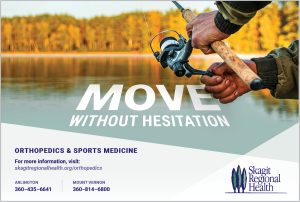Article on How Do I Protect My Brain Health was contributed by Kevin Clay, MD, Chief of Ambulatory Medicine at Providence Regional Medical Center. This was first published in Vibrant Senior Options Resource Guide, Fall 2019

We as a nation are facing increased rates of Alzheimer’s and strokes, and both of these medical conditions drastically affect the brain and alter one’s life and the families as well. Alzheimer’s disease is one of the most rapidly increasing modern medical illnesses, with Diabetes disease coming in second. The startling fact is that those with Diabetes have a two-fold increase in risk of Alzheimer’s Dementia and an increased risk for strokes as well. Strokes are a “Brain Attack,” similar to a heart attack, while Alzheimer’s disease is a “Mind Attack.’’ Strokes are usually caused by the blockage of a small blood vessel in the brain. Alzheimer’s disease is the gradual blockage of nerve tracks caused by inflammation, and creates “Amyloid Plaques.” This disease was first described about 100 years ago by a German housewife.
Most Health is Controlled by Choices
Medical Science is now recognizing that only 10% of our health is controlled by medical providers and hospitals. Genes have 20-30% impact, leavings lifestyle choices as having 60-70% impact on our health. Several recent books have been published that show the significant impact of positive lifestyle choice and the effects on the brain. These lifestyle changes may be more powerful than prescription medications.
Let’s look at some of the recent books in the last decade to answer our question, beginning with the “Blue Zones”.
“Blue Zones”
Most all the world is living longer, and the “Blue Zones” (areas where people live 8-10 years longer with good health) can teach us some valuable lessons. There are five Blue Zone areas in the world: Ikaria, Greece; Sardinia, Italy; Okinawa, Japan; Nicoya Peninsula, Costa Rica; and Loma Linda, California. In each of these communities we find a theme of healthy whole food diets with a strong plant slant. Meat is enjoyed for holidays and special occasions, but not daily. Active lifestyles and strong social connections are also common.
“How Not to Die”
Dr. Greggor, in “How not to Die,” recommends several diet and lifestyle suggestions that can reduce your risk of stroke. What are his recommendations? Eat a high fiber diet that has vegetables and fruits (especially citrus), beans, whole grains and nuts, and simple whole foods. The ideal diet limits or avoids meat and dairy, as well as excess sugar. The highly processed foods that have a long label are not the best choice. One needs to limit their salt intake to less than 2-3 grams of salt daily (about a teaspoon). Make exercise a regular routine for a minimum of 5 days a week and 30 minutes per day for a weekly total of 150 minutes.
“Reversing Alzheimer’s Disease”
Dr. Bredesen, in “Reversing Alzheimer’s Disease,” has done a lot of research at his Buck’s Institute in the San Francisco area. He says that the one food which causes the most inflammation is sugar. Therefore, he recommends we avoid processed sugar. He also proposes that the cause of Alzheimer’s disease is from nutritional deficiencies and poor diet. Nutritional deficiencies lead to inflammation in the brain. He developed the “ReCode” program that includes nutritional supplements to augment his low fat, grain free, mild meat, and fish consumption diet. His book presents several cases of people who have followed the program, reversing Alzheimer’s disease. He also recommends regular exercise and brain exercises. The worst thing we can do is to sit at home and watch TV.
“The Alzheimer’s Solution”
Dr. Sherazai who wrote “The Alzheimer’s Solution,” has done a significant amount of research around Alzheimer’s disease. He has an Alzheimer’s clinic at Loma Linda University. In his book, he supports the findings of Dr. Bredeson that Alzheimer’s is an inflammatory disease, which is often the result of poor diet and lifestyle choices. In 1900, the average American had less than 10 pounds of sugar in their diet. By 2010, the FDA reported the average American’s sugar intake as 190 pounds! Soda pop in 1900 equaled Zero, an by 2010 equaled 56 gallons annually! He has a simple mnemonic to follow to protect your brain health: NEURO
N=Nutrition for Brain Health:
Whole foods, plant slant diet with mainly vegetables and fruits, whole grains and nuts, legumes (beans). Avoid sugar and processed foods. He recommends limited fish or small amounts of meat, or no meat at all.
E=Exercise for Brain Health:
Exercise at least 30 minutes daily to improve blood flow to your brain and promote brain health.
U=Unstressed for Brain Health:
Learn how to manage stress. Too much stress is very destructive on the brain. Under stress we tend to make poor decisions, which impact our ability to make good lifestyle choices.
R=Restore or Rest for Brain Health:
We need to have about 7-8 hours of sleep each night. During sleep the brain reformats the day and recharges! And finally…
O=Optimize Your Brain Health:
Keep using your brain by studying and learning new things. Be socially engaged in your community, family, and group settings, such as church or social functions.
In summary, the three authors and research from “Blue Zones” are all recommending similar diet and lifestyle solutions to protect our brains from strokes or Alzheimer’s disease.
Optimal Diet Recommendations:
The optimal diet recommended for brain health is whole foods with a strong plant slant, lots of vegetables and fruits, nuts, whole grains, and legumes. And AVOID refined sugar. Meat intake: Little or none, moderate amounts of wild fish. Daily physical activity is recommended. And finally, the authors encourage us to never stop learning and enjoying life to the fullest!
So, the choice is yours. To best protect your brain, consider seriously these recommendations and study for yourself. More and more research confirms that “Lifestyle” is very powerful in combating Alzheimer’s and strokes. Final Question: Are your lifestyle choices optimally supporting your good brain health?

